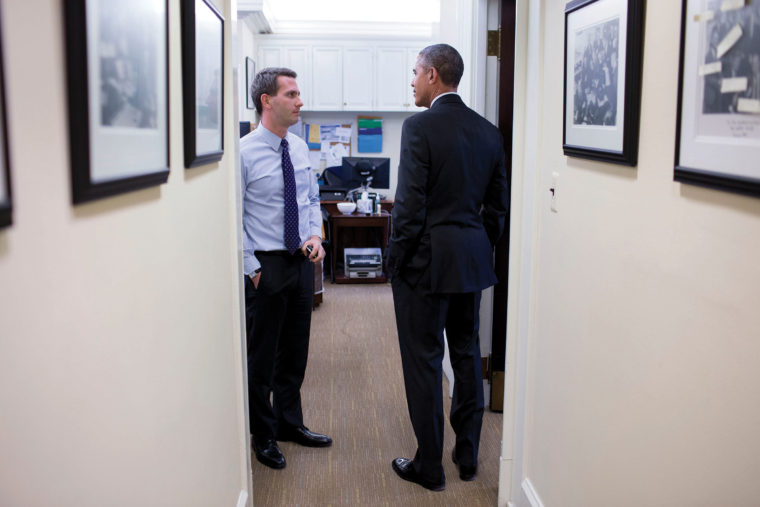Eric Schultz’s first campaigns were for the Congress of the South 40 (CS40).
His next: the U.S. Senate.
After his sophomore year at WashU, Schultz, AB ’02, spent the summer working for Hillary Clinton during her inaugural run for the Senate in 2000. The job offered him the rare opportunity to learn from some of the brightest minds in American politics. But when the campaign asked Schultz to stay in New York through the election, he was torn.
“I loved being on campus and was not interested in spending time away from the university,” says Schultz, who was then a CS40 executive and a member of Kappa Sigma Fraternity. “But when I spoke to people on campus, they all said, ‘We’ll be here when you get back. Take this experience and run with it.’ It was great advice. I got to see all the components of a campaign — field work, fundraising, research and the tech side. It made me really realize my interest lay with communications.”
Today, Schultz is principal deputy press secretary and special assistant to President Barack Obama. You’ve seen him on television taking questions from the White House press corps. But that’s a small part of his job.
“Most of what we do happens outside the briefing room,” Schultz says. “We are working around the clock, whether it’s talking to the reporters making the morning network shows or to the reporters who are putting their stories to bed late at night.”
That’s called “rapid response,” and Schultz, a veteran of some of Washington’s top press offices, is considered a master.
“Given the hyper speed of the media environment right now, being able to respond effectively and credibly to any type of story that is out there is incredibly important,” says Schultz, who has worked for powerful Democratic senators Chuck Schumer (New York), John Edwards (North Carolina) and Al Franken (Minnesota). “Unfortunately, when you are dealing with the federal government, sometimes retrieving the information takes some time. You won’t always have all of it at your fingertips the moment someone is blogging or tweeting about it. So we do our due diligence on the front end so we have the best information ready. The last thing you want is to say something that will be contradicted later.”
The stakes couldn’t be higher, says Wall Street Journal reporter and Washington University alumna Laura Meckler, AB ’90.
“An errant or ill-considered comment can create tensions with other world powers and offend friends and enemies alike at home,” says Meckler, who covered President Obama’s first term. “That sort of pressure renders some people virtually mute. But the best of them, Eric included, find a way to serve both the president they represent and the reporters who count on them every day.”
Those days are coming to a close with the approaching end of President Obama’s second term. Schultz says he has no idea whom he will serve next.
“It will be difficult, if not impossible, to top working at the White House,” Schultz says. “I’ve been given a front-row seat to history. I was with the president when he gave that amazing speech in Charleston, South Carolina, and when the Supreme Court upheld the health-care act. These are moments of history that I’m fully aware very few people get to witness. Even now, I still get chills every time I walk through the [White House] gate.”
